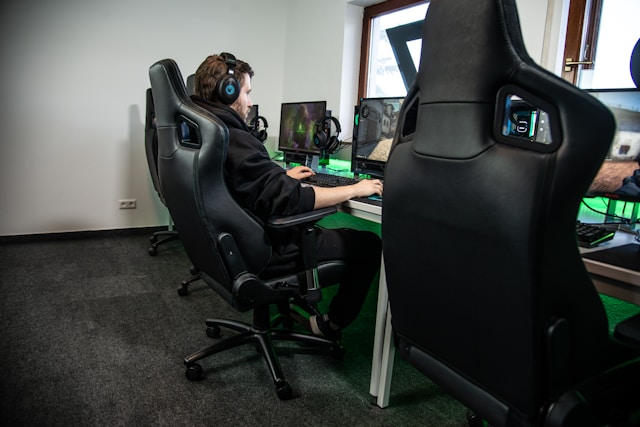As technology continues to redefine how we interact with digital spaces, the gambling industry stands on the brink of a major transformation. Virtual reality (VR), once a novelty, is fast becoming an essential part of online entertainment. By 2030, VR casinos are expected to offer far more than basic 3D environments. They’ll create fully immersive, social, and interactive experiences that rival real-world casinos. These changes will not only revolutionize gameplay but also reshape how players engage with platforms, each other, and the casino ecosystem itself.
Enhanced Immersion and Realism
By 2030, VR casinos will offer incredible levels of realism, with environments that closely mimic luxurious Las Vegas resorts or fantasy worlds with dynamic, animated scenery. Advanced graphics, haptic feedback, spatial audio, and even scent-emitting hardware may all combine to deliver multisensory gambling experiences.
Players won’t just see the slot machine—they’ll feel the lever, hear the ambient noise of chips clinking and conversations around them, and walk through elaborate casino halls filled with animated dealers and players. This kind of immersive experience aims to blur the line between physical and digital gambling.
Hyper-Personalized Avatars and Environments
As VR technology becomes more sophisticated, so will customization options. By 2030, players will be able to create highly detailed avatars, complete with facial expressions, voice modulation, and custom clothing. Casino environments will also adapt to user preferences, allowing gamblers to:
- Choose specific themes or atmospheres (e.g., futuristic, classic Vegas, underwater, space).
- Save and revisit their favorite “rooms” and games.
- Interact with AI-driven hosts that personalize greetings, recommendations, and bonuses.
This personalization makes VR gambling feel more like a social experience and less like a solitary activity.
Multiplayer Social Gambling

One of the most significant shifts expected by 2030 is the social layer of VR casinos. Unlike current online casinos where interaction is limited to text or occasional video, VR casinos will make real-time interaction a core feature. Players will:
- Sit at live poker or blackjack tables with other users, represented by avatars.
- Use voice chat and gestures to communicate during gameplay.
- Attend virtual tournaments, events, or even concerts hosted inside the VR casino.
Gamblers will feel part of a global virtual community, with friendships, rivalries, and reputations built through ongoing play.
AI Integration and Smart Game Design
Artificial intelligence will also play a key role in the future of VR casinos. By 2030, AI will be used to:
- Create adaptive game mechanics that change based on player behavior.
- Personalize difficulty levels and bonus features.
- Power NPC (non-player character) dealers that respond to human gestures and speech.
AI-driven analytics will track your preferences, suggest new games, and even warn of risky behavior, contributing to a safer and more responsible gambling environment.
Blockchain and Digital Ownership
In 2030 and beyond, blockchain integration will deepen the value of VR casinos. With the rise of non-fungible tokens (NFTs) and decentralized platforms, players may:
- Own virtual items, such as exclusive avatar skins, private rooms, or in-game furniture.
- Trade or sell assets on secondary markets.
- Receive provably fair outcomes via on-chain RNG systems.
Some VR casinos may run entirely on blockchain, allowing for transparent, decentralized operations, where smart contracts handle everything from payouts to dispute resolution.
Regulatory and Ethical Considerations
With the growing complexity and reach of VR gambling, regulation will become more important. By 2030, expect to see:
- Global standards for verifying age and identity in virtual spaces.
- Tools for tracking playtime, spending, and risky behavior.
- Integration of responsible gambling measures, such as time-outs and betting limits embedded in the VR interface.
Gambling authorities will need to evolve quickly to monitor immersive platforms without stifling innovation. Expect collaboration between tech companies and regulators to develop ethical frameworks for immersive betting.
Accessibility and Hardware Advances

By 2030, VR headsets will likely become lighter, cheaper, and wireless, removing current barriers to entry. With improved battery life, 8K resolution, and faster connectivity (like 6G), more players will be able to access VR casinos from home.
Additionally, cross-platform compatibility will allow users to transition between desktop, mobile, and VR modes without losing progress, preferences, or currency balances. Casual users may access a 3D-lite version on their phone, while dedicated players go fully immersive.
New Genres and Game Types
VR casinos won’t be limited to just poker tables or slot machines. New genres will emerge:
- Skill-based games that blend arcade action with real-money betting.
- Adventure gambling—exploring dungeons, solving puzzles, or battling bosses to earn crypto.
- Hybrid reality experiences, mixing real-time live dealer games with VR enhancements.
These innovations will help attract younger audiences who expect more interactivity and variety in digital entertainment.
Final Thoughts
The future of VR casinos promises a bold fusion of technology, entertainment, and interactivity. By 2030, these platforms will go beyond simple games and offer fully immersive digital playgrounds where gambling, socializing, and gaming coexist in real-time. Driven by advances in AI, blockchain, and hardware, VR casinos will become more personalized, safer, and globally accessible than ever before.
For players, this means more choice, more realism, and more control. For the industry, it opens up a new frontier in gambling innovation—one that’s not just about winning or losing, but about the experience itself.
